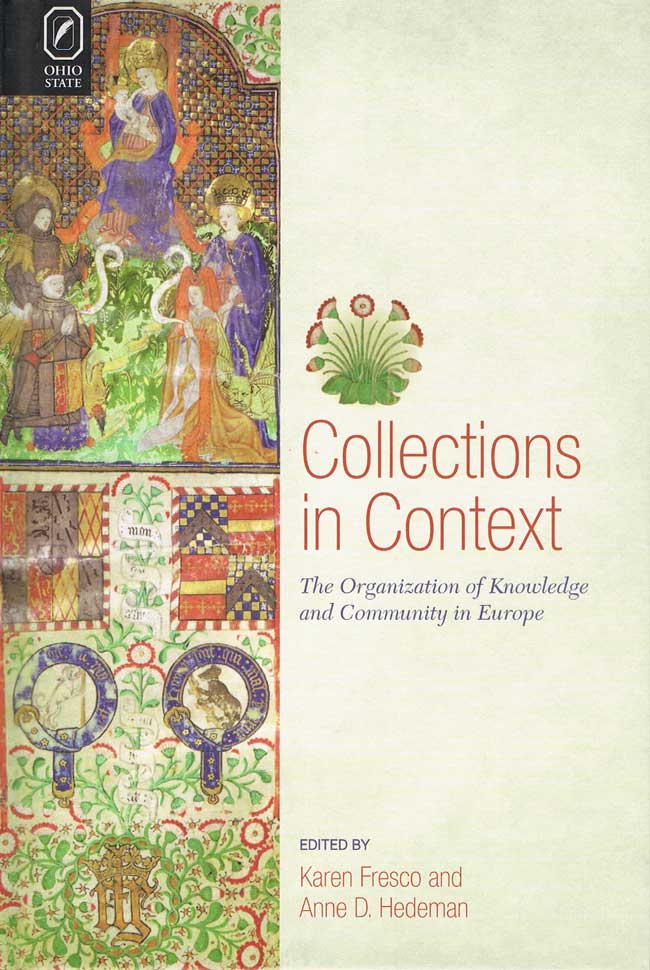Collections in ContextThe Organization of Knowledge and Community in EuropeEdited by Karen Fresco and Anne D. HedemanText and Context |
 1/25/2012 Literary Criticism/Medieval; Art/Medieval 340 pp. 6x9  $57.95 cloth 978-0-8142-1171-7 Add cloth to shopping cart Shopping Cart Instructions Review/Change Shopping Cart & Check-out | |||
|
“Collections in Context makes us reevaluate the history of collecting and the extraordinary importance of the invention of the codex—not the normative view that considers the invention of print to be the first major development—that revolutionized the production of the book, and not just the dissemination of knowledge, but the very production of knowledge itself. The volume’s importance for the history of the book, as well as for political, social, and artistic history, are clear.” —Marina Brownlee, Robert Schirmer Professor of Spanish and Comparative Literature, Princeton University The fourteen essays that comprise Collections in Context: The Organization of Knowledge and Community in Europe interrogate questions posed by French, Flemish, English, and Italian collections of all sorts—libraries as a whole, anthologies and miscellanies assembled within a single manuscript or printed book, and even illustrated ivory boxes. Collecting became an increasingly important activity during the fourteenth through seventeenth centuries, when the decreased cost of producing books made ownership available to more people. But the act of collecting is never neutral: it gathers information, orders material (especially linear texts), and prioritizes everything—in short, collecting both organizes and comments on knowledge. Moreover, the context of a collection must reveal something about identity, but whose? That of the compiler? The reader or viewer? The donor? The patron? With essays by a wide array of international scholars, Collections in Context demonstrates that the very act of collecting inevitably imposes some kind of relationship among what might otherwise be naively thought of as disparate elements and simultaneously exposes something about the community that created and used the collection. Thus, Collections in Context offers unusual insights into how collecting both produced knowledge and built community in early modern Europe. Karen Fresco is associate professor of French and Medieval studies at the University of Illinois.
Anne D. Hedeman is professor of art history and Medieval studies at the University of Illinois. | ||||

